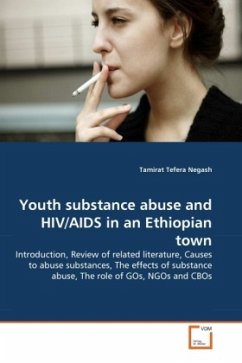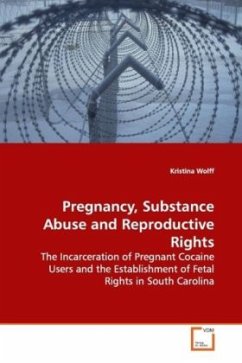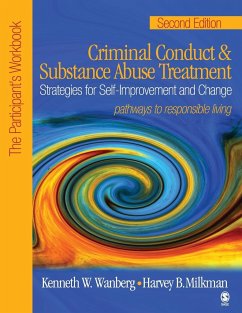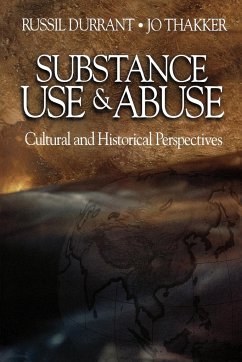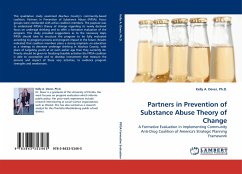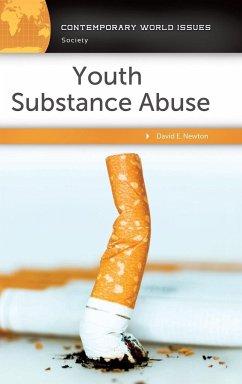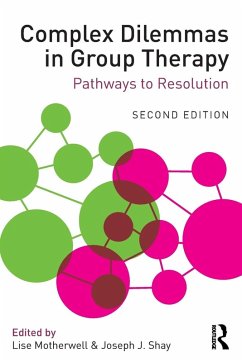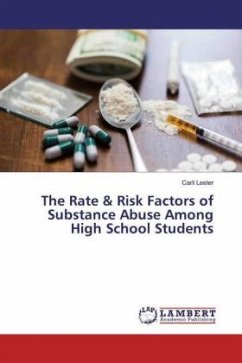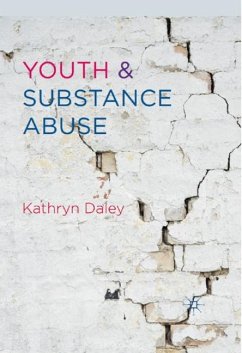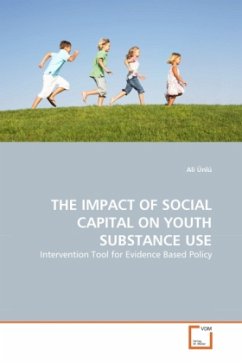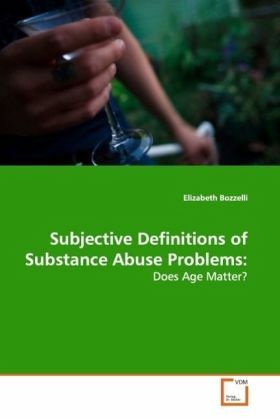
Subjective Definitions of Substance Abuse Problems:
Does Age Matter?
Versandkostenfrei!
Versandfertig in 6-10 Tagen
32,99 €
inkl. MwSt.

PAYBACK Punkte
16 °P sammeln!
The language associated with substance use behavioris not clearly defined, making effectivecommunication on the topic difficult. This worksheds light on how substance abuse is conceptualized,discussed, and perceived. Focus groups and surveysare employed to explore how substance abuse problemsare defined among Baby Boomers and college students. Age-specific vignettes describing substance usebehavior of hypothetical individuals allow for anexamination of stereotyping and in-group/out-groupthinking, however significant findings suggest thatthese frameworks are not the dominant influence onrespond...
The language associated with substance use behavior
is not clearly defined, making effective
communication on the topic difficult. This work
sheds light on how substance abuse is conceptualized,
discussed, and perceived. Focus groups and surveys
are employed to explore how substance abuse problems
are defined among Baby Boomers and college students.
Age-specific vignettes describing substance use
behavior of hypothetical individuals allow for an
examination of stereotyping and in-group/out-group
thinking, however significant findings suggest that
these frameworks are not the dominant influence on
respondent perceptions. Instead, the concepts of age
norms and the growing-up effect are more helpful in
making connections among study outcomes. These
outcomes overwhelmingly indicate that age matters
when forming opinions about substance use behavior.
This publication as a whole serves as one reference
point for studies further investigating the ambiguous
nature of substance abuse discourse. The analysis
should also be especially useful to those interested
in the age normative framework and/or the idea that partying in college is a rite of passage in today s
society.
is not clearly defined, making effective
communication on the topic difficult. This work
sheds light on how substance abuse is conceptualized,
discussed, and perceived. Focus groups and surveys
are employed to explore how substance abuse problems
are defined among Baby Boomers and college students.
Age-specific vignettes describing substance use
behavior of hypothetical individuals allow for an
examination of stereotyping and in-group/out-group
thinking, however significant findings suggest that
these frameworks are not the dominant influence on
respondent perceptions. Instead, the concepts of age
norms and the growing-up effect are more helpful in
making connections among study outcomes. These
outcomes overwhelmingly indicate that age matters
when forming opinions about substance use behavior.
This publication as a whole serves as one reference
point for studies further investigating the ambiguous
nature of substance abuse discourse. The analysis
should also be especially useful to those interested
in the age normative framework and/or the idea that partying in college is a rite of passage in today s
society.



